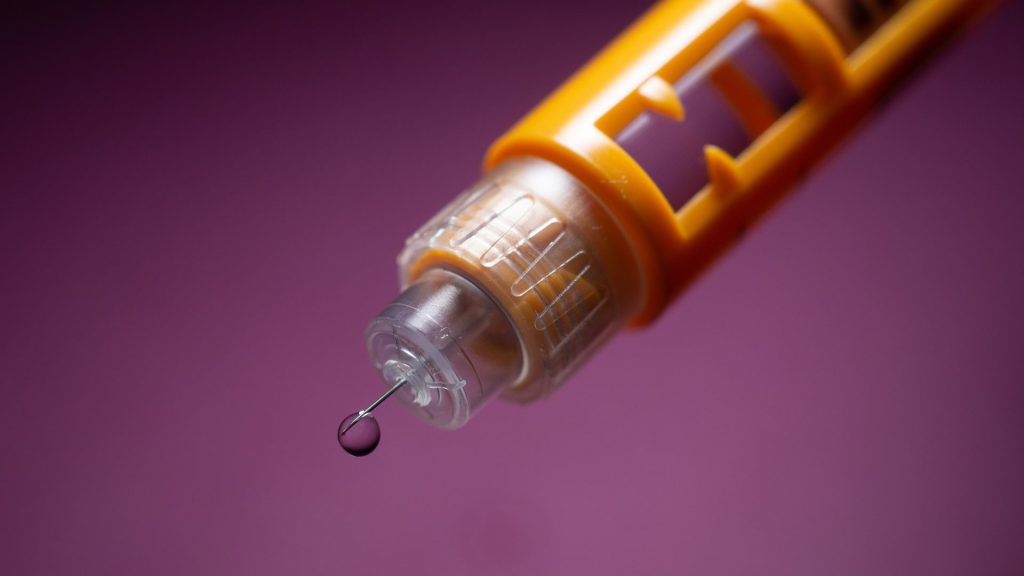
Insulin icodec, a once-weekly basal injection to treat type 1 diabetes, has the potential to be as effective in managing the condition as daily basal insulin treatments, according to research from the University of Surrey. The results of the year-long phase 3 clinical trial were published in The Lancet, and could one day revolutionise diabetes care.
During this pioneering study, scientists across 12 countries at 99 sites, led by Professor David Russell-Jones from Surrey, tested the efficacy and safety of a weekly basal injection of icodec (a long-lasting type of insulin) and compared it to a daily basal injection of insulin degludec in adults with type 1 diabetes. Short acting insulin to cover meals was used in both groups.
Professor David Russell-Jones, Professor of Diabetes and Endocrinology at the University of Surrey and a Consultant at the Royal Surrey Foundation Trust, said:
“Many people find managing a long-term condition such as diabetes very difficult and report missing vital insulin injections. Missed injections can affect glycaemic control, and a lack of consistency in the treatment has been linked to increased rates of diabetic ketoacidosis, a serious complication of the condition that can be life-threatening. Reducing insulin injection frequency could lessen the burden of treatment for some people with the condition and improve their glycaemic control.”
To learn more about the efficacy of icodec, scientists recruited 582 participants with type 1 diabetes. Participants were split into two groups; the first received once-weekly injections of icodec (700U/mL), and the second received daily injections of degludec (100U/mL), both in combination with aspart, a short-acting insulin at mealtimes.
After 26 weeks, scientists identified HbA1C levels in those who had taken icodec had decreased from a mean of 7.59% at baseline to an estimated mean of 7.15% , and for degludec, the mean had fallen from 7.63% to 7.10%. The estimated treatment difference between them being 0.05 percent, confirming the non-inferiority of icodec to degludec, but with a significantly reduced injection frequency for patients to manage.
Scientists did also identify higher rates of hypoglycaemic episodes (abnormally low levels of glucose in the blood) in the icodec group compared to degludec. However, despite the higher levels in the icodec group, scientists noted that incidences were low in both groups, with most episodes only requiring oral carbohydrate administration. For icodec, time below 3.0mmol/L was at the threshold of the internationally recommended targets during weeks 22-26 and below recommended targets during weeks 48-52.
Professor Russell-Jones added:
“What we have found is that once-weekly icodec injections showed non inferiority to once-daily injections of degludec in reducing HbA1C after 26 weeks. Although there is a slightly higher rate of hypoglycaemia under this regime, we found this could be easily managed. We’ve concluded this new insulin may have a role in reducing the burden of daily basal injections for patients managing type 1 diabetes.
“Our findings are very promising, but further analysis of continuous glucose monitoring data and real-world studies are needed.”
Source: University of Surrey

